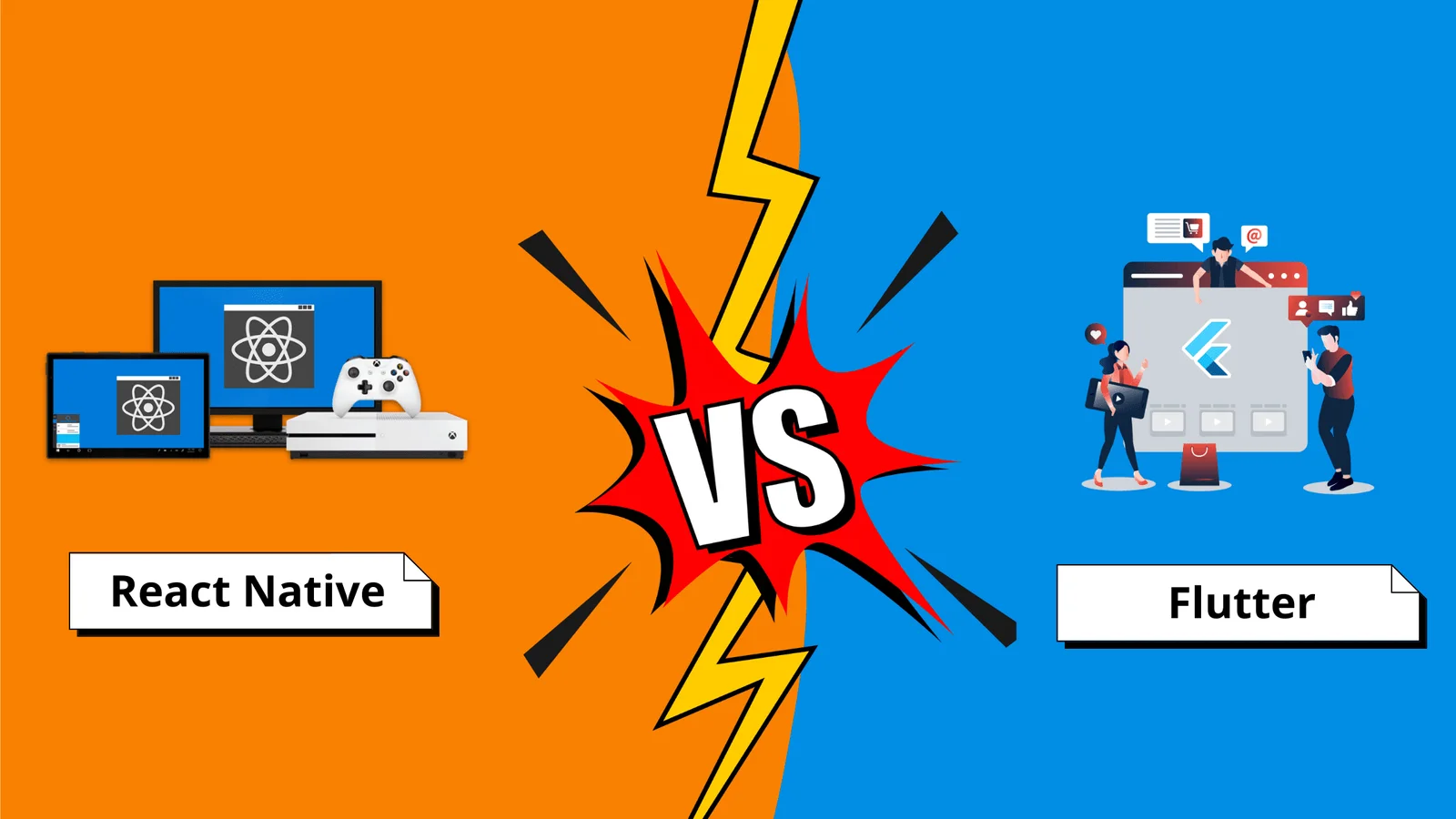We all still remember the day when we used to wait for an hour or two to get a chance to use the internet or complete our project in cybercafes. It was a decade ago sound’s too old, right. In the modern world, everyone has access to the internet hence we can perform all our tasks in a few minutes.
A recent study also highlighted that around 230 billion mobile applications were downloaded in 2021, nearly twice that of 140 billion mobile application downloads in 2016. So, the mobile application is not an upcoming trend anymore it is the trend.
When it comes to mobile app development, flutter and react actively are two popular platforms you will find on the internet. One of the prominent reasons they are powerful is that they are backed by tech giants like Facebook (React Native) and Google (Flutter).
This article will discuss 11 key differences between React Native vs Flutter App Development.
1: Performance
The first and foremost thing which will strike your mind when thinking about the mobile app is development and performance. Both Flutter and react-native are open-source frameworks making them free and readily available. You can use libraries and perform a live test of iOS and Android on smartphones and tablets while developing the platform.
The performance of react-native applications is quite powerful compared to flutter, but they are also slow compared to flutter.
2: Ecosystem
React native works on JavaScript, which has been around the world for the last three decades; hence it is quite mature and has a large community of developers compared to flutter. On the other hand, flutter is the latest technology, and its popularity is growing rapidly. The rapid incline of the number of people using flutter has also increased its stars on GitHub rating.
3: Development
When the concern is about development, flutter provides room for changes during the entire developmental process. On the other hand, react-native doesn’t provide this feature hence reducing the speed of the development process. The library of react native is also not vast like a flutter, yet it is quite easy for companies to build their applications react-native compared to flutter.
4: Architecture
The UI components of the flutter are new and pre-installed, which makes the development process quite easy for all the developers. At the same time, a developer has to use a JavaScript bridge to bring in all the UI components in the application.
5: Installation
One can install React Native using NPM or Node Package Manager when using Mac OS and Homebrew package manager. On the other hand, flutter supports binary download directly from GitHub, and the file needs to be added as a PATH variable. Continue reading react native vs flutter app development comparison.
6: Setup and project configuration
In flutter, you have to set up the document using a specific CLI tool called flutter doctor and in react native; you have to create the first app by writing a specific command.
7: Community support
Support from the community is quite important for developers as they help them improve efficiency. Flutter was built in 2017; hence, the developers’ community would not be as extensive as react-native. Although the number of developers using flutter is increasing, its numbers are quite low compared to react-native.
8: DevOps support
There is no support for official documentation when setting up CI/CD. Flutter has a separate CI, and using Flutter CLI is quite an easy job for all the developers.
9: Testing
Testing also plays a vital role during the entire developmental process of an application. When you build your application on react native, you have to rely heavily on third-party tools to test your application on react native.
Flutter has its own three levels of application testing features like widget test, integration test, and unit test.
10: Deployment
There is no official documentation available in react native. Therefore, the deployment of the application depends on the developer’s skills. All the applications built on flutter are kept on fast-lane and are also documented through CLI.
11: Native like feel
According to recent research, native applications work quite faster when compared to other applications. Most brands expect developers to build applications that provide a native-like user experience to their audience. Despite being a cross-platform solution, react native is outperformed by flutter when the concern is about providing a native-like feel to all the users.
Conclusion
When you are building apps, it is quite important to keep the developmental stage faster to ensure that you can deliver your projects quickly. Both flutter and react-native provide a speedy development process and reduce overall developmental cost. Keep in mind every application is different; hence you have to consider the best platform to build your application by knowing the merits.
You can also consult an experienced app developer before starting your project. Boffin Coders can help you in both Flutter App Development or React Native App Development.




